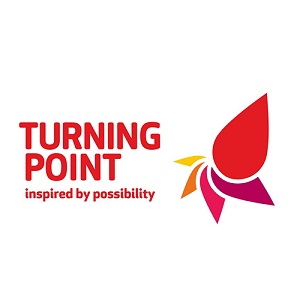Drug & Alcohol Rehab in Leicester

How Does Rehab Work?
Rehab involves the support services and therapies that people with drug and alcohol addiction receive to overcome addiction and subsequent relapse. After a medical assessment and detox are completed, individuals will start addiction treatment in the form of therapy. Treatment consists of therapy from a professional counsellor, the attendance of group meetings as with a 12 Step programme, and the option of inpatient or outpatient rehabilitation. Inpatient rehab services require that clients live at the residence or centre for the period of therapy. Outpatients will attend therapy by counselling or meetings but will not stay at the facility. Consultation with a medical specialist and an individual assessment can help decide if inpatient or outpatient services are suitable for your requirements.
What Happens During Residential Rehab?
Rehab is the first step towards recovery and sober living. It can be challenging to work on quitting addictive behaviours on your own but with the support of professional intervention, an addiction-free life can be achieved. You may fear the unknown; however, a breakdown of the process can help put your mind at ease.
Prior to entering treatment, every individual will be assessed by a medical professional. The aim is to create a treatment plan suited to individual health and wellness needs. This is particularly important for those with a history of addiction and comorbid mental conditions including depression, anxiety or bipolar disorder.
The next phase of a rehab plan is detox. Detoxing from substances requires the removal of the drug or alcohol from the body, typically over a period of time that limits withdrawal symptoms. Detox should ideally be monitored professionally to help those with withdrawal symptoms. When the substance is removed from your body, the next phase of treatment begins (therapy).
Therapy is an important part of rehab and every aspect of treatment should be tailored to address individual backgrounds, substance dependencies, and circumstances. Interventions can range from private counselling and cognitive behavioural therapy to building coping strategies, skills, and attending group meetings.
1. Assessment

A medical assessment is carried out prior to treatment to identify medical history, and alcohol or drug use over time. If you are searching for residential treatment, an admissions team will provide a telephone assessment. An assessment by phone will help the treatment centre provide a tailored treatment package. It can also help medical staff to support the individual during detox.
Should you or someone you love require help to overcome dependence, it starts with an individual assessment. The purpose is to determine the right therapeutic approach for the management of addictions and possible comorbidities.
2. Detox

Detox is a period in which drugs and alcohol are no longer ingested and cleared from the body. It is a process that is best monitored by medical staff in a rehabilitation facility.
The reason medical detoxification from substances is advised is owed to the difficulties and the nature of withdrawal symptoms that may occur during this time. Without reliance on a professional service and medical attention, the risk of relapsing is heightened. Individuals who receive detox and an assessment will be required to participate in a therapeutic programme which involves inpatient rehab or outpatient programmes.
3. Therapy

Therapy involves the one-on-one and group sessions you will attend with a qualified therapist, counsellor, and support staff. Treatment is provided in both a residential rehab and an outpatient programme. The direction for therapy will depend upon individual circumstances.
Step by Step Process for Residential Rehab
To understand your medical and mental health history.
Arrange a suitable date to begin your journey to recovery.
Begin the managed withdrawal process from substances including alcohol.
To understand the root cause of addiction and how to overcome it.
Aftercare is provided to help manage the risk of relapse.
To help heal the wounds that addictive behaviour has caused others.
Find your Nearest Rehab Centre near Leicester
The nearest rehab centre is P C P Leicester.
Address: P C P Leicester, 158 Upper New Walk, Leicester LE1 7QA, United Kingdom
Call 0333 4444 432 to discuss your alcohol or drug rehab requirements and any other questions you may have about the process of residential rehab.
Outpatient Addiction Services in Leicester
Inpatient or outpatient treatment for addiction can be determined by your budget requirement & individual circumstances. Nevertheless, it is an individual process that requires full commitment and awareness to succeed. To help you understand these different options, we look at outpatient addiction treatment services compared with residential rehab.
Outpatient programmes are not a 24 hour or even a 12-hour programme, but instead, involve weekly meetings with a therapist or group. Individuals will stay at home and continue to work or tend to family time while receiving the necessary therapy.
If you are interested in pursuing outpatient treatment, it is vital to find the right programme that suits your needs. Outpatient programmes range from paid private counselling to free charitable organisations that specialise in drug and alcohol addiction.
NHS Free addiction services in Leicester
The Benefits of Outpatient Services
Private Outpatient practices focus on individual support that is tailored to suit the interests of those struggling with addiction. – Outpatient treatment is a more flexible setup that will help many struggling with addiction, regardless of financial or work commitments. It involves the attendance of weekly sessions with a qualified therapist or counsellor. – It is a more cost-effective treatment programme compared to inpatient addiction treatment.
The Challenges of Outpatient Services
While outpatient play a vital role in accessible addiction treatment, it is also associated with a higher relapse potential. While free outpatient services do exist through the NHS or UK-based charities, waiting times are to be expected and treatment tends to be more generic.

How Much Does Rehab Services Cost in Leicester?
You can expect to pay between £1500 – £4000 per week for residential rehab. If you cannot afford a private addiction plan, you can rely on free and more economical recovery programmes to deal with your addiction issues. There are many organisations that assist individuals with free and affordable services throughout the UK.
Fortunately, free programmes are provided by organisations including the NHS and charities such as Turning Point (that requires self-referrals). Other organisations that provide free and community-based therapies for drug or alcohol addiction include Alcoholics Anonymous (AA), Cocaine Anonymous, and Narcotics Anonymous.
Support Groups in Leicester

Leicester Ladies
Methodist Church, Town Hall Square, 10a Bishop St (side entrance) LE1 6A

We Do Recover Group
Woodgate Resources Centre 36 Woodgate Leicester Leicestershire LE3 5GE

Leicester Lunchtime Online
Bishop Street Methodist Church, 10A Bishop St (side entrance). LE1 6AF
The Pros and Cons of Seeking Treatment in Your Local Area
Pros
1. You are familiar with the area which may provide a layer of comfort/safety.
2. Family or friends can easily travel to visit or are close by.
3. You could save on the costs of travelling long distances for treatment, or free services may only be offered in your area of residency.
Cons
1. A local environment means access to drug dealers or other triggers. This is more of a concern if you choose outpatient programmes.
2. Not considering locations outside your local area could mean a missed opportunities for more valuable and rewarding programmes.
3. Addiction treatment programmes that are close by do not always offer the best standard of treatment.
If you are unsure of how to look for a rehab service you can trust, consider the CQC. The CQC website offers listings of rehabilitation services and organisations that are ranked according to the standard of its services.

